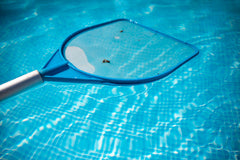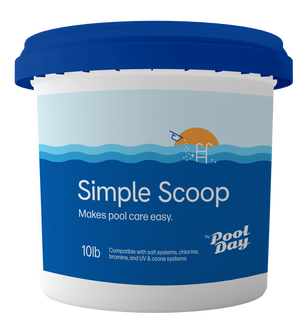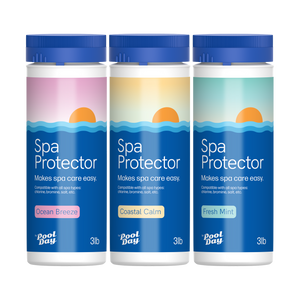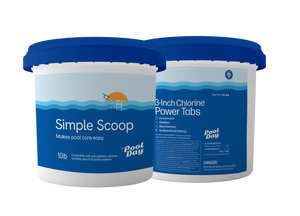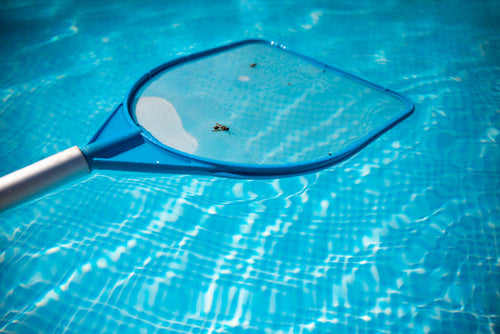Metal Mayhem: A Guide to Metal in Your Pool Water
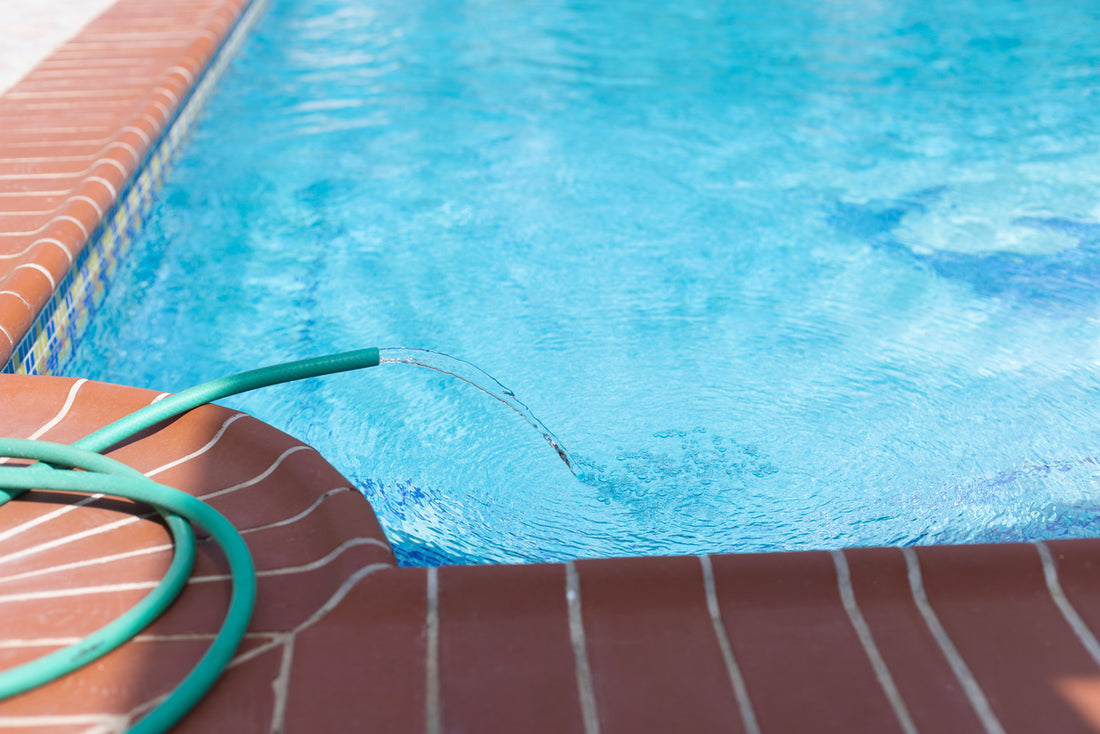
Today, we're tackling a pesky problem that can turn your refreshing oasis into a metallic mess: too much metal in your pool water. But fear not, fellow water warriors, because we've got the scoop on how to turn your pool from a rusty wreck into a shimmering sanctuary!
What do we mean by "metals in your pool water?"
All water contains trace amounts of metals like iron, copper, aluminum, zinc, silver and even gold! Small amounts of metals in your pool water are totally fine. When they stay dissolved in the water you won't even notice them.
However, metals can become a problem when they separate from the water, to discolor the water or deposit as pool stains. This can happen when your pool becomes unbalanced or when you simply have too much metal for your pool water to hold.
Don't get too concerned--metals in the pool do not pose any health risk for swimmers even at high levels. They also won't really throw off your water balance. The main issue with too much metal is, well, it's ugly! Metals and minerals can cloud the water and even stain the surface of your pool green, yikes!
How do metals get into your pool?
The most common metals in pool water are iron and copper. They occur naturally in well water, and are also found in municipal water in varying amounts depending on your location. So, if you live in an area with higher metal concentrations in your water supply, refilling your pool from your hose may be adding metals to your pool.
Over use of copper or silver pool algaecide is another way that metals can enter a swimming pool. Normally the algae will consume these metals, so when used in proper amounts the metals in these products are not a concern. However, over using the silver or copper algaecide without enough algae to consume these metals can lead to metal build up in your pool.
Finally, many fertilizers can contain high levels of iron, copper, manganese, etc. So, if heavy rains cause with mud or mulch to enter the pool, those fertilizers those fertilizers can also lead to elevated metal levels.
How to deal with heavy metals
-
Test for Metal: First things first, grab your trusty pool testing kit and check those metal levels. Copper, iron, and manganese are the usual suspects, so keep an eye out for any sky-high readings.
-
Sequestering Agents to the Rescue: Say hello to your new best friends: sequestering agents. These bad boys are like superheroes for your pool, swooping in to bind with pesky metals and escort them right out of your water. Just add them to your pool according to the instructions, and metal build up should be banished in a jiffy!
-
Vitamin C to the Rescue: Who knew ascorbic acid could be a superhero? Well, when it comes to battling metal stains, it's the hero we never knew we needed. Simply grab some vitamin C tablets, crush 'em up, and sprinkle them over those stubborn stains. Watch in amazement as they vanish before your very eyes!
-
Keep It Balanced: Maintaining proper pH and alkalinity levels is key to preventing metal issues in your pool. So, break out those testing kits regularly and make sure your water chemistry is on point.
-
Stay Vigilant: Metal buildup doesn't happen overnight, so stay vigilant and keep an eye out for any signs of trouble. Test your water source, and if it contains high levels of heavy metals, you can use a filter on your hose when filling your pool. The sooner you catch it, the easier it'll be to nip it in the bud.
So there you have it, pool peeps! With a little know-how and a touch of elbow grease, you can banish those metal monsters and keep your pool sparkling all season long. Happy swimming! 🏊♂️💦



